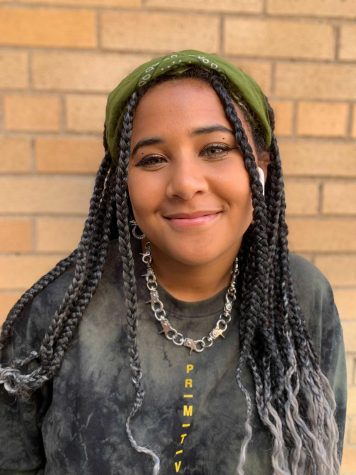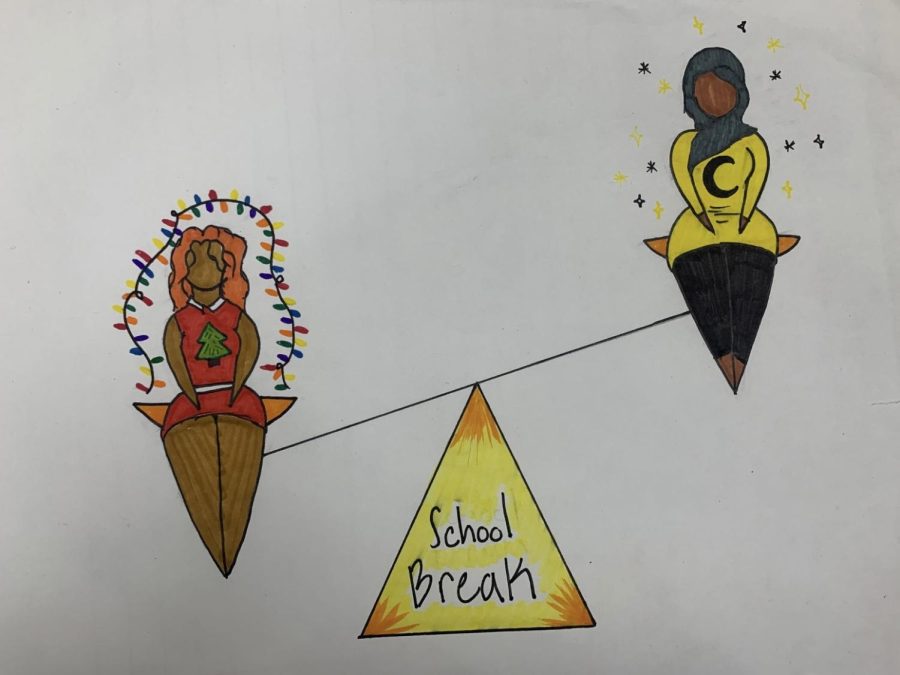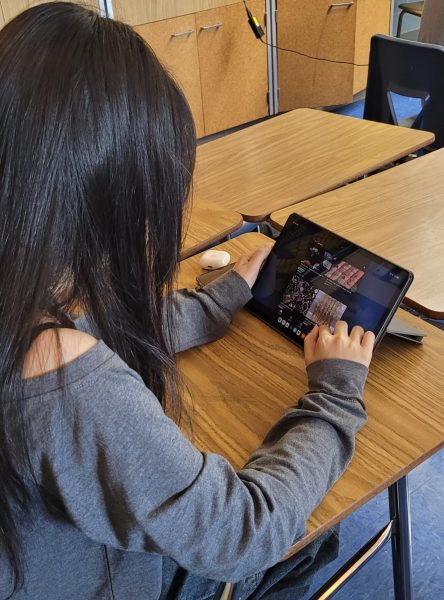CHPS calendar changes needed to accommodate Eid
The current CHPS calendar accommodates holidays like Christmas but forces students celebrating Eid to miss out on classes.
After a month of fasting, Muslims worldwide end Ramadan with the festival Eid Al Fitr, or a celebration of breaking fast. Of the two holidays celebrated in Islam, this one will be occurring during the school year in 2022. This year will be especially difficult after COVID has caused a lot of inconveniences. After the lockdown, this Eid has become a means for Muslims to break the Lockdown routine we were unconsciously repeating. In some way, Thanksgiving and winter break were ways to get back to the normal we had lost and experience the culture of togetherness and festivity.
“Although we don’t celebrate holidays such as Thanksgiving and Christmas, we tend to partake in the joy and uplift those celebrating alone,” Student Council member and practicing Muslim Barni Mohamed (12) said. “Other schools [like Minneapolis, Hopkins, Moorhead and Mankato] in Minnesota have offered to add the Eid holiday to their school calendar. I feel like our school shouldn’t hesitate to do the same.”
Like these other school districts, Columbia Heights Public Schools serve and educate a large number of Muslim families.
“About a quarter of the students that attend this school are Muslim, and it’s only fair that Eid is taken seriously,” Maryan Muqtaar (12) said. “Students should feel proud and see that Islamic holidays aren’t brushed off when accepting religious differences.”
Maryan’s sentiment is echoed among her and my diverse pool of friends. Muslim Student Association member Saron Nigus, who is involved in MSA despite not being Muslim, is also an active supporter of the change.
“I feel like it’s wrong to underplay such a holiday for Muslims while we prioritize other holidays,” Nigus said. “I feel like it’s important to recognize the significance of Eid and what it means to Muslims. Not only is there no break, but there’s no acknowledgement at all.”
The hope for change comes from the myriad other ways our schools support Muslim students and families despite the lack of acknowledgement we face regarding school holiday planning, whether it be offering space and time for Muslims to pray or offering a separate location to spend the lunch hour during Ramadan. And yet, in many ways, Muslim students still feel they and their culture are overlooked.
“As a student part of the Student Council, I have attended many meetings that would prepare our school for ‘Winter Spirit Weeks’ or candy cane sales, [which seem to be code] for Christmas,” Mohamed said. “However, I have yet to participate in a meeting where we discuss [events that coincide with] Islamic holidays [or] give awareness to Ramadan. I feel this is a matter to be changed.”
Instead, Muslim students are relegated to plan events on their own, often without school or staff support or funds.
“During spring break, three of our Somali, Muslim, girls organized a pre-Ramadan party for our Muslim community,” Rehab Diriye (11) said. “They’ve spent so much time and effort on something truly amazing and garnered much support. There were Islamic gifts that would help the students make their Ramadan [experience] THAT much better. They provided Somali dishes, snacks, etc. About 150 students came to the prayer room which truly showed its success. There’s nothing like having a strong Muslim community here which is what MSA strives for.”
With Eid being a lunar holiday rather than a clear, yearly date easily determined a year in advance, there is often confusion among non-Muslims as to why there can’t be an exact date reported to the school board ahead of time so the school and families can plan their itinerary accordingly.
Many schools and districts across America, however, are finding ways to accomodate their increasingly Muslim student and family populations. Allies like Jewish religious leader Ms. Batya Steinlauf, also a member of the Jewish Community Relations Council of Washington, D.C., supported Muslim parents calling for no school to be held on Eid in their county.
“[We want] to communicate an appreciation of the rich diversity of Montgomery County,” Steinlauf said to VOA News.
But the school board’s chairman, Mr. Phil Kauffman, said a government agency should not recognize any religious holiday.
“I do not think we should have any mention of specific religious holidays in our calendar because we are a public school,” Kauffman said.
The board voted to remove all of the names of religious holidays—including Christmas—from the official school schedule. However, schools will still be closed on those days that coincide with Christian holidays, but not Eid. This is just a thinly veiled Christian bias in public education at work.
On the bright side, Columbia Heights Public Schools Human Resources director Lindsey Bennet spoke to The Heights Herald about future plans to accomodate the local Muslim community’s requests.
“The School Board and the Superintendent have already discussed considering Eid for future school calendars,” Bennett said. “Unfortunately, the requests for Eid being a non-school day came after the 2022-23 calendar was already set. But in the future, Eid will be a consideration during the calendar committee meetings.”
In the meantime, Muslim students and families here at Heights should also know that missing school due to Eid is already considered an excused absence for students. While this is not advertised, especially among non-Muslim staff at Columbia Heights High School (CHHS), the message is finally starting to spread.
“This was my first year as the principal at Heights, so it has been a very good [year of] learning for me,” CHHS Principal Todd Wynne said. “I will monitor this May and see what happens here at the high school. This will give me [the] information needed to make an informed decision moving forward. More than likely, it will be for the 2023-24 school year, as the calendar for 22-23 has already been determined.”
While this seems to be an overly delayed solution to the issue, the fact that Eid will be considered for future calendars is a plus in my books. Even if it’s taking a while to get there, it’s clear that the community cares and wants to do better.

Amara Thompson is a senior at Columbia Heights High School and is the Web Editor & Staff Writer for The Heights Herald. She is captain of the Speech...








